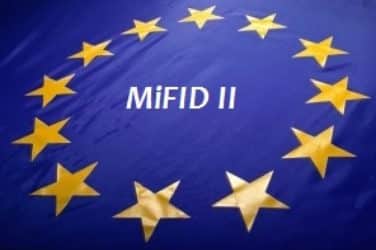On January 26, 2016, a subset of the satellites that make up the Global Positioning System (GPS) suffered a software fault, resulting in their broadcasting a coordinated universal time (UTC) that was off by 13 microseconds, exceeding the design specifications. Many GPS users experienced timing issues for up to 18 hours. Research over the past few days indicates that the problem arose from a faulty software update as an old satellite was being removed from the system.
Financial services firms rely on GPS and other time synchronization tools to track market data distribution, reception and trade execution. As technology advances continue to increase both the number and speed of daily transactions, it is increasingly important that these large flows of data have a high quality time reference.
Regulatory factors are also driving many financial services firms to think more seriously about high precision timestamps. The 2017 MiFID II implementation date, though likely to be extended, requires a minimum synchronisation standard of no more than +/- 100 microsecond variance to UTC time for trading gateways at all European trading venues. Fast forward a year or two, and a seemingly minor delay in the GPS satellite system could have major implications on compliance for many financial firms.
Perseus deploys NIST Time Measurement and Analysis Service (TMAS) and grand master clocks within each of nine time nodes across the globe, covering the US, EMEA and APAC regions. Designed by NIST for use in research laboratories, the TMAS device maintains the highest level of calibration, logging and audit standards. Local devices are initially configured and calibrated to NIST using GPS signals, but maintain time locally at each PrecisionSync node enabling them to maintain accurate time should GPS synchronization become unavailable. Perseus time nodes are measuring and correcting for drift against each other and also to NIST using the Perseus secure, low latency and highly deterministic network allowing PrecisionSync to provide a robust and reliable time source within key financial centers around the globe.
Ben Cooke, SVP Engineering at Perseus, explains “Perseus PrecisionSyncTM was specifically engineered to get time right, even when GPS fails or gets it wrong, whilst offering a chain of custody traceable from the customer equipment all the way back to NIST. We built this product solely for the purposes of disseminating Coordinated Universal Time (UTC) as a service so that customers can focus on their core business and not have to worry about timekeeping accuracy and audit compliance. For this reason, we are very proud to say that customers using Perseus PrecisionSyncTM services were not affected by the recent GPS instability.”
While 13 microseconds may seem small by human standards, it can encompass a large number of financial transactions in a modern trading system. As regulatory controls continue to tighten in the US and Europe and trading speeds increase, it seems an opportune time for financial firms to seriously consider other, more reliable time syncing services.




